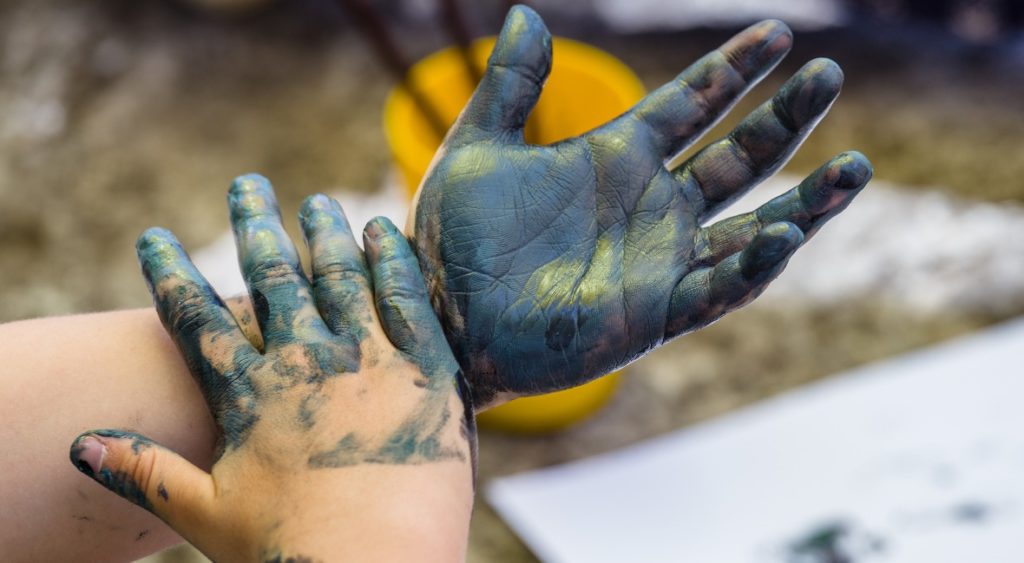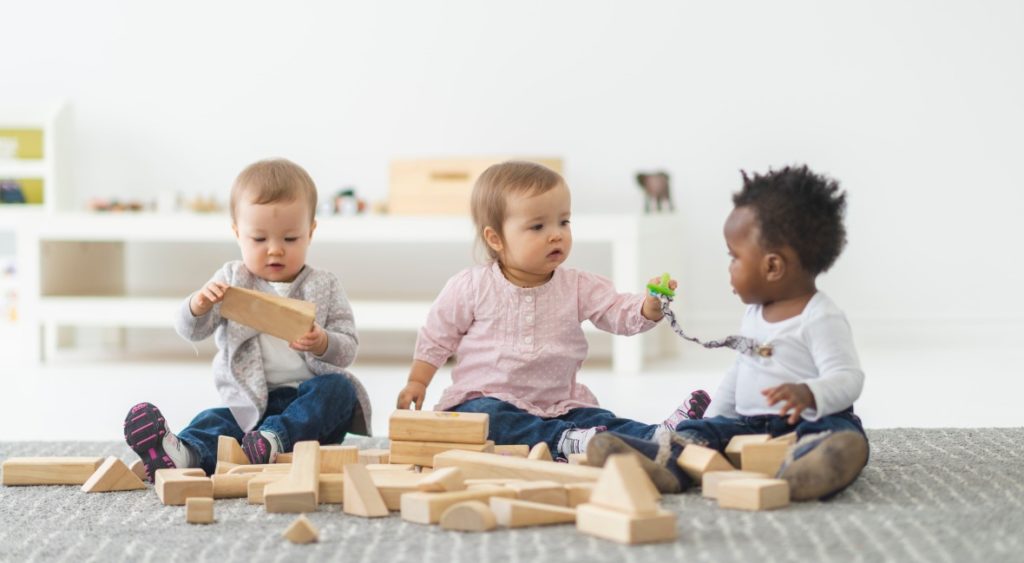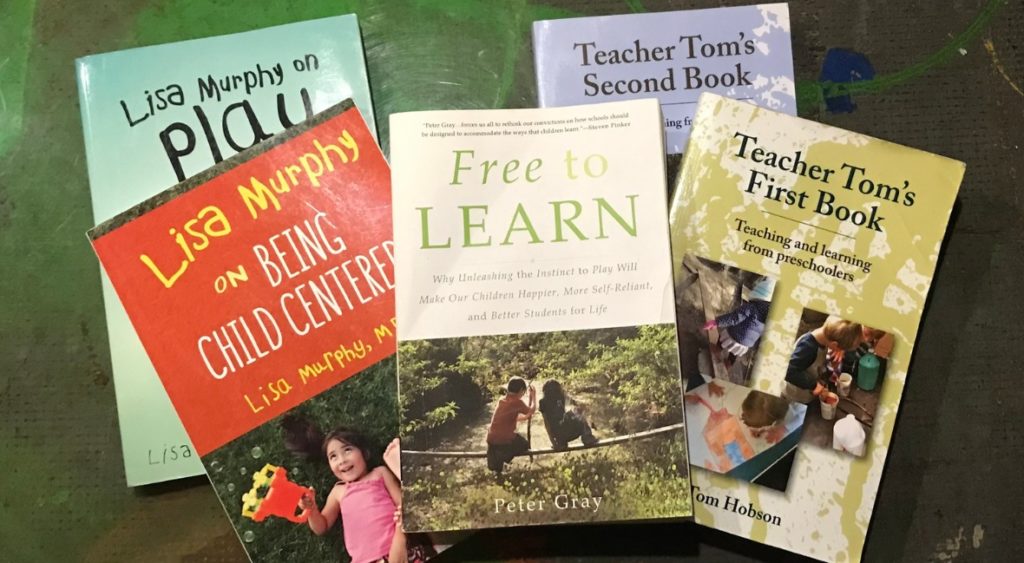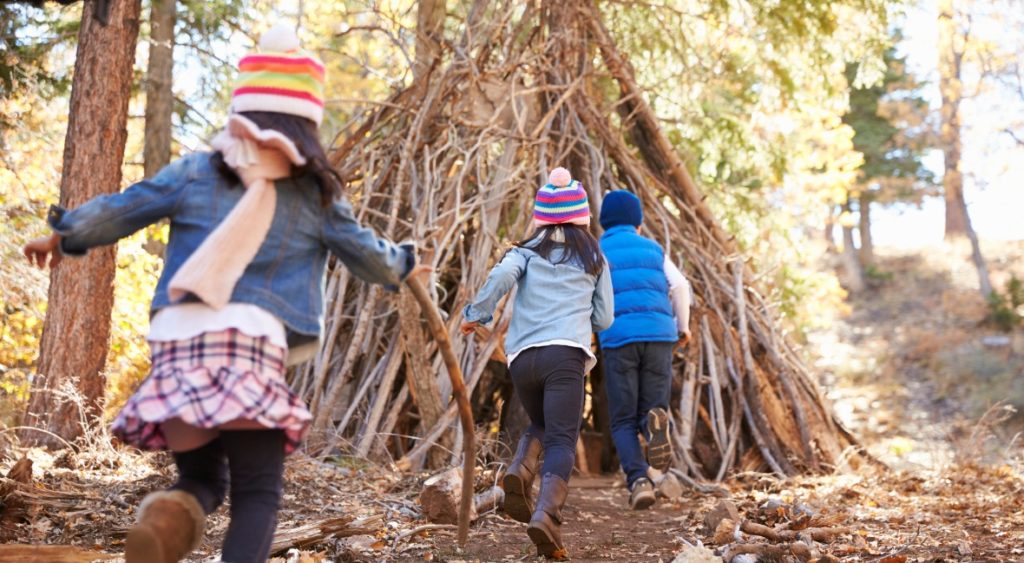Play is not just about entertainment for children; it’s a fundamental aspect of their growth and development across multiple dimensions. It shapes their physical, cognitive, emotional, and social health, preparing them for the complexities of life.
It is sad that when we think of learning, we think of school and teachers, rote memorization, tests, and grades. Children must be bribed or threatened with rewards or poor grades and grow to hate their time in school.
Children learn in joyful ways through self-directed play, play in which they can ask and answer their own questions and follow their own interests.
For example, when a child plays with blocks, they learn about balance, proportionality, failure, and engineering, all while communicating, cooperating, and modulating their behavior to engage with friends. They are also learning about their own interests and passions. And all of this takes place in a low-stress state of mind.
I believe in the power of play and am here to share that love with you. This page shares resources to help parents, caregivers, and educators understand play so they can become play advocates and fight for appropriate care settings for children.
Armed with this knowledge, you can change the world.
In this guide:
- The Power of Play
- What is play?
- Resources about the Power of Play
- TED Talks about Play and Learning
- Blogs about Learning, Education, and Play
- Books on Learning and Education
- Final Thoughts on Play
The Power of Play
First, it is essential to briefly highlight how play contributes to learning and development in much deeper ways than rote academic learning.
Play is crucial for children’s development for several reasons:
- Cognitive Development: Play enhances children’s cognitive abilities. It helps them understand the world around them and develops their problem-solving skills. Through play, kids learn to think, remember, and reason.
- Physical Development: Active play is vital for physical development and health. It improves their motor skills, coordination, and overall physical fitness. This type of play is especially important in an era where sedentary lifestyles are becoming more common.
- Emotional and Social Development: Play is essential for children’s emotional and social development. It teaches them how to cooperate, negotiate, take turns, and handle conflict. Through play, children also learn empathy and understanding of others’ emotions. Children want the play to continue, so they are motivated to moderate their own behavior.
- Language and Communication Skills: Playful activities often involve communicating with others, which enhances language skills. Children learn new words and how to use language effectively in different contexts.
- Creativity and Imagination: Play encourages creativity and imagination. Engaging in unstructured, imaginative play allows children to express themselves creatively and think outside the box.
- Stress Relief and Emotional Well-being: Play is a natural stress reliever. It helps children process their emotions and experiences, contributing to their overall emotional well-being. Also, play is enjoyable and thus brings children joy and happiness.
- Learning about the Environment: Through play, children learn about their physical world. They understand spatial concepts, experience different textures, and learn how different objects function.

What is Play?
In order to talk about play, it is essential to first define what play is and is not. Many educators claim to use “play-based” practices when, in fact, their teacher-imposed activities (while hands-on) are not play.
Here are two sources to help you better understand definitions of play put forth by researchers:
Definition of Play by Dr. Peter Gray
True Play by AnjiPlay
Resources about the Power of Play
The following research articles demonstrate the importance of play.
Directors Column: Play-Based Learning Leads to School Readiness. Stanford Bing Nursery School
This article emphasizes the critical role of play in early childhood development. It counters the misconception that play is not educational by asserting that play is intrinsically linked to learning in young children.
Play is described as a biological and universal necessity, with declining opportunities for play over the past four decades necessitating urgent attention.
The Power of Play: A Pediatric Role in Enhancing Development in Young Children
This article, published by the American Academy of Pediatrics, discusses the essential benefits of play.
It highlights how children’s development and stress management are enhanced by play, which builds key skills and executive function, and fosters nurturing relationships. When lacking, play’s absence exacerbates toxic stress, but its presence, especially in adversity, regulates stress response and supports healthy development.
The Role of Play in Children’s Development: a Review of the Evidence
This paper from the LEGO Foundation discusses the existing research connecting children’s play to their learning and development across various fields such as evolutionary psychology, anthropology, neuroscience, and educational studies.
The paper aims to advance the study of play by focusing on its psychological characteristics and the types of play children engage in, such as physical play, symbolic play, and pretend play.
The Effects of Play-Based Learning on Early Childhood Education and Development
This article emphasizes the critical role of play-based learning in early childhood education, highlighting its long-term benefits in enhancing social skills, academic success, and attention spans.
It discusses the underappreciated psychological and sociological aspects of play and advocates for natural learning through play, facilitated by teachers, and stresses the potential difficulties faced by children who miss out on early education opportunities.
The Importance of Play in Promoting Healthy Child Development and Maintaining Strong Parent-Child Bonds
This article underscores the vital importance of play in the cognitive, physical, social, and emotional development of children and youth while acknowledging the decline in free play time due to factors like a hurried lifestyle and an increased focus on academics.
It advocates for a balanced approach that includes play as a crucial component of a child’s developmental environment, recognizing the need to adapt to each child’s unique social and environmental context.
Decline in Independent Activity as a Cause of Decline in Children’s Mental Well-being: Summary of the Evidence
This paper addresses the alarming rise in anxiety and depression among children and teens in the U.S., proposing the decline in opportunities for independent play and activities as a primary cause.
It explores the link between reduced independent activity and mental health, emphasizing the role of such activities in immediate satisfaction and long-term psychological resilience, and calls for more research and consideration by health practitioners and policymakers.
The Overprotected Child
This fascinating article from The Atlantic highlights how fear drives parents to overprotect their children and how junkyard playgrounds are one way of bringing risk, and adult-free exploration back into childhood.

TED Talks About Play and Learning
The Decline of Play by Peter Gray
In his talk, Dr. Peter Gray emphasizes the significant decrease in children’s free play and the corresponding increase in mental health issues over the past 60 years, advocating for the essential role of unstructured play in children’s social and emotional development and proposing ways to reintegrate free play into their lives.
How Our Schools Thwart Passions by Peter Gray
Peter Gray calls out all the ways that schools keep children from exploring their passions and dreams.
Play is More Than Just Fun by Stuart Brown
Play researcher Dr. Stewart Brown discusses the importance of play for children and adults alike.
Let Children Play by Alex Elliott Lockhart
Alex Elliot Lockhart advocates for simple play, enabling children to experience flow and explore the world independently, countering the current trend of quantifying cognitive processes.
Stop Stealing Dreams by Seth Godin
In this talk, Seth Godin asks, “What is school for?” and calls out how our current school system is designed for compliance and obedience, not learning.
Blogs About Learning, Education, and Play
Teacher Tom’s Blog
Legendary educator Tom Hobson is a master of reflection and uses examples from his time teaching preschool in Seattle to showcase theory in practice. Blog posts are short, easy to read, and amazingly insightful.
Peter Gray’s Posts on Psychology Today
Peter Gray is a play researcher who does an amazing job of breaking down current research in his blog post for Psychology Today. His posts highlight the need for play and self-direction.
Books on Learning and Education

1. Free to Learn by Peter Gray
Free to Learn will change your life and is a must-read for every parent, caregiver, and educator.
Put it on hold at the library, check out the audiobook on Libby, or head to the bookstore!
This book explores the importance of play in children’s learning and development, advocating for more autonomy and self-directed learning in education systems. Gray argues that traditional schooling, with its focus on structured curriculum and assessment, stifles children’s natural curiosity and impedes their ability to learn effectively.
The book draws on research in developmental psychology, anthropology, and Gray’s own research at age mixed democratic school, proposing a radical shift towards play-based, child-led learning environments that respect children’s innate abilities and desire to explore the world around them.
2. Lisa Murphy on Being Child-Centered by Lisa Murphy
This book is a must-read for EVERY early childhood educator (and caregivers trying to pick a school for their child)!
In this book, Lisa Murphy emphasizes the importance of creating a learning environment driven by each child’s interests, needs, and developmental stages. She advocates for a hands-on, play-based approach to education, arguing that this method fosters deeper understanding and engagement among young learners.
The book challenges educators to reconsider traditional teaching methods and to focus on controlling the environment instead of the child so that children can learn and explore in creative, self-directed ways.
3. Teacher Tom’s First Book and Teacher Tom’s Second Book by Tom Hobson
These books by Tom Hobson are collections of his insightful and engaging blog posts, reflecting his experiences and philosophy as a preschool teacher that will have you highlighting every other line.
Hobson emphasizes the importance of play-based learning, democratic classrooms, and the co-construction of learning between teachers and students. His approach is centered on respecting children as competent individuals, fostering community, and encouraging critical thinking, creativity, and collaboration through a hands-on, experiential learning environment. Examples help to ground show these principles in action.
4. One World School House by Sal Khan
In “The One World Schoolhouse: Education Reimagined,” Sal Khan, the founder of Khan Academy, presents a visionary approach to education, advocating for a fundamental shift from traditional classroom structures to more personalized, student-centered learning.
Khan argues for harnessing the power of technology to provide students with individualized instruction and to foster mastery of subjects, rather than focusing on grades and rote memorization. The book outlines a model of education that encourages lifelong learning, critical thinking, and the development of diverse skills, suggesting that this approach can make education more engaging, effective, and accessible to learners worldwide.
5. Let the Children Play by Pasi Sahlberg and William Doyle
This book is a compelling advocacy for the critical role of play in children’s education and development. The authors, combining global research and observations, argue that play is not just beneficial but essential for creativity, problem-solving, and emotional and social well-being.
They critique the current trend in education systems that prioritize academic achievement over play, urging educators, parents, and policymakers to embrace play-based learning as a foundation for a more holistic, effective, and joyful approach to education.
6. Mindset by Carol Dweck
This book is another must-read for all caregivers and educators.
It explores the concept of ‘mindset’ and how it profoundly influences the way individuals approach challenges and learning. Dweck distinguishes between two mindsets: the ‘fixed mindset,’ which assumes that our abilities and intelligence are static, leading to a desire to appear smart and a tendency to avoid challenges, and the ‘growth mindset,’ which thrives on challenge and sees failure not as evidence of unintelligence but as a heartening springboard for growth and for stretching our existing abilities.
The book delves into how adopting a growth mindset can lead to success and personal development in various aspects of life, including education, work, and relationships, emphasizing the power of our beliefs to shape our outcomes.

Final Thoughts on Play
We must begin deemphasizing teacher-centered academic learning in favor of the deeper skills gained in play. Play gives children the space and time to learn and practice all the skills they need for life.
We must work to give children the three ingredients needed for play: time, space, and other children.
Parents and Caregivers:
- Give your children large blocks of unstructured time.
- Minimize adult-directed activities such as soccer or music class in favor of child-directed play.
- Step back and give them time to play without you.
- Avoid flashy “educational” toys that play themselves in favor of simple open-ended toys and objects like blocks, cardboard boxes, blankets, realistic toy animals, kitchen items, art supplies, etc.
- Give children access to indoor and outdoor spaces and time with friends.
It will not be easy. Your natural instinct as an adult, especially in this day and age when you have been told you need to constantly promote development, is to interfere, to guide, to direct, to “help.” But I promise that if you step back children will do much more creative things and learn much more without you.
Early Childhood Educators:
- Minimize teacher-directed lessons in favor of large blocks of unstructured time in which children can play.
- Give them access to well-resourced environments and age-mixed settings.
- Allow children to ask and answer their own questions.
- Let go of the need to be “teaching” in favor of creating engaging environments where children can “teach” themselves. For example, change up the supplies in the art area but avoid telling children what to do with them.
- Give children access to blocks, things to climb on, small and large loose parts, etc, and forget about prompts or telling children what to do with them! Let children play how they would like- you’ll be amazed at how creative they are without you.
Course on Independent Play
Fostering Independent Play
Fostering Independent Play is the complete HOW-TO guide for parents on why, when, and how to encourage independent play.
This online course is primarily targeted at parents, caregivers, and educators of children from birth to age 6. It aims to shed light on the importance of independent play in early childhood and provides practical strategies to encourage this type of play. The course content is spread across four modules, encompassing 17 video lessons totaling over 2 hours, along with downloadable PDF guides for easy reference.
The first module introduces the concept of play and its significance in child development. The second module focuses on creating conducive play spaces and selecting appropriate toys that foster deep, independent play. The third module advocates for a minimalist approach, offering techniques for decluttering toys and managing toy rotation effectively. The fourth and final module delves into
Additionally, the course features a discussion board for participant interaction and concludes with a certificate of completion, making it a comprehensive resource for anyone seeking to enhance independent play in children’s routines.
Do you have play resources that have helped you on your journey to honoring childhood?
Share your favorite books, articles, and play research by emailing me at hello@kidswhoplay.com! I would love to add your resources to this list.
- Looking for ways to foster play with your children? Check out my popular on-demand video course: Fostering Independent Play

